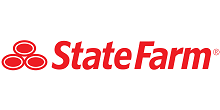The issue of insurance can be super straight forward if you own a home or rent an apartment. In this case, it’s easy to figure out what type of insurance you need.
Homeowners get homeowners insurance and renters get renters or tenants insurance.
But what type of insurance do you get if you own shares in a co-op building? Not everyone knows that co-op insurance exists to meet this type of insurance need.
As you might imagine, co-op insurance is a tad more complex than homeowners or renters insurance because of the way co-ops are structured. Let me start by saying that you’ll need to do some digging to find out exactly what coverage you need.
I’m going to start off by sharing what I think are the companies that offer the most attractive co-op insurance, and then help break down everything you need to know about co-op insurance.
Best co-op insurance companies overview
| Company | Best for | Insurance Offered | Unique Features |
|---|---|---|---|
| Lemonade | Insurance quote in just minues with a company that gives back | Condo, co-op, homeowners, and renters | Leftover money not paid in claims is donated to causes policyholders care about |
| Policygenius | Multiple quotes | Homeowners and renters | Get multiple quotes with one application |
| State Farm | Traditional insurance options | Condo and renters | Quote online or with a local agent |
| USAA | Military and qualifying members | Condo and renters | Products and customer service geared toward military members and their families |
Lemonade

This may seem like a strange ‘best of’ category for any type of insurance. And that’s because it is. Whereas most insurance companies exist to turn a profit for their owners and shareholders, Lemonade aims to turn a profit and focuses on giving back. Lemonade takes a flat fee off your premium, and any money left over after paying out claims is donated to causes policyholders care about.
Lemonade calls this giveback, which is as you can imagine, pretty unique to Lemonade. It makes them the best co-op insurance for insurance that gives back.
Co-op insurance with Lemonade covers 5 main areas: dwelling, personal property, loss of use if you can no longer live in your co-op, personal liability, and medical payments to others. You can get a quote from Lemonade quickly if you live in Arizona, California, Colorado, Connecticut, Georgia, Illinois, Indiana, Iowa, Maryland, Massachusetts, Michigan, Missouri, Nevada, New Jersey, New York, Ohio, Oklahoma, Oregon, Pennsylvania, Tennessee, Texas, Virginia, Washington D.C., and Wisconsin.
If you own a co-op in NY, CA, TX, IL, PA, DC, or NJ, and rent out your property less than 5 times a year, Lemonade provides landlord insurance which will protect your property and the stuff you own, but does not protect your tenant.
» Read our full Lemonade insurance review.
Policygenius

While Policygenius doesn’t actually offer co-op insurance policies themselves, I’ve included them as the best co-op insurance option for multiple quotes.
Policygenius is an insurance broker. This means they work with several insurance companies to find you the best co-op insurance for your situation.
You only have to fill out one application. After your application is submitted, you’ll get many quotes from different insurance companies. This saves you both time and potentially money, as well.
While Policygenius doesn’t offer a co-op insurance category on their site, you can get quotes through either homeowners or renters insurance based on your particular co-op and your needs.
» MORE: Read our full Policygenius review.
State Farm

If you prefer to go the traditional insurance route, State Farm is a large and respected insurance company.
You can get co-op insurance quotes online or at your local State Farm agent’s office if you prefer.
Sometimes there are benefits to having a local agent you can talk to when you have problems. That’s why I included traditional insurance, such as State Farm, in my best-of list.
Get a co-op insurance quote with State Farm today.
USAA

If you serve in the United States military or are a family member of someone who has, you may qualify to become a USAA member. USAA’s insurance options, including co-op insurance, are for members only.
If you do qualify, one of the major benefits of USAA is they understand the lifestyle their members live since they’re all connected to the military in some way. This includes having to move across the country multiple times over a career.
Their customer service is top-notch and they can help you figure out how to help with your unique situations as a military member. Other insurance companies may not be able to relate to the lifestyle or the needs like USAA can.
What is co-op insurance?
Co-op insurance can be difficult to understand. In a traditional co-op arrangement, a corporation owns a building.
Individuals own shares of the corporation that allow them to live in individual units within the building. However, the individuals don’t own the units, they only own the shares of the co-op.
When it comes to insuring co-ops, it can be done in different ways. The corporation normally has a master co-op insurance policy that covers all of the common areas and certain other aspects.
Unfortunately, the master co-op insurance policy may vary from co-op to co-op, so you need to read it to understand what is and isn’t covered.
Some co-op master insurance insures walls and fixtures
In some cases, co-ops may insure the building as it was originally built, including walls and fixtures within an individual unit.
Fixtures usually include items that are physically attached to the building such as light fixtures, cabinets, and countertops. That said, items that aren’t attached, such as personal belongings and sometimes appliances, aren’t fixtures.
If changes are made to the unit or fixtures, they may not be insured beyond the value of the original configuration of the unit. If you buy into a co-op and live in an updated unit, the updates may not be insured at their new value under the master policy.
Other co-op master policies may only include common areas
Each co-op may have different types of insurance policies that cover different things. Other co-ops may state that the people that live in the units are responsible for everything from the walls in, including fixtures such as cabinets.
In these cases, co-op insurance master policies typically focus on insuring the structure of the building, the exterior of the building and the common areas. They also likely include liability insurance for the insured areas, but not within your unit.
Understand what your co-op’s master policy insures
For that reason, it’s important to carefully read your co-op corporation’s master policy to see what is and isn’t covered by it.
Insurance policies can be confusing, so you may also want to go over the master co-op policy with your insurance agent. Insurance agents are used to reading these complicated policies and can help you determine the coverage you need.
Once you understand what isn’t covered by the master policy, you can figure out what type of co-op insurance you need to cover your investment.
Differences between co-op insurance and homeowners insurance
If you’ve owned a home in the past, you may think co-op insurance and homeowners insurance should be pretty similar. While they do share some common characteristics, they’re very different at the same time.
In a traditional homeowners insurance policy, the structure, personal property, and liability are covered. Homeowners would potentially have to rebuild their entire home in the worst-case scenario.
Co-op shareholders would only be responsible for replacing their unit from the walls depending on the master policy. In some cases, your individual co-op insurance policy may only have to cover personal belongings, updates to the unit and liability within the unit.
Either way, individual co-op insurance policies typically don’t have to rebuild the main building structure, which is one of the more expensive factors. This means co-op insurance policies tend to be cheaper than homeowners insurance.
Why you may need co-op insurance
Since the master co-op policy won’t cover you completely, you need to purchase an individual co-op insurance policy. Individual co-op insurance can protect you from liability of accidents within your unit as well as cover your belongings and upgrades to your unit.
If your master co-op policy has exceptions such as no water damage, flood or earthquake coverage, individual co-op policies may be able to insure you for these issues.
If your master co-op policy doesn’t have enough coverage or has high deductibles, it is possible certain individual co-op insurance policies can help you cover these costs.
What does your individual co-op insurance policy cover?
Figuring out what your individual co-op insurance policy covers will depend on the particular policy you buy. Here are some guidelines to help you get started.
If your co-op insures most everything
If your co-op master policy insures your building, the walls of your unit and your fixtures, your individual co-op insurance policy may not have to.
Instead, your individual co-op insurance policy will focus on protecting your personal belongings, called personal property, and any liability you may have.
In this case, it often makes sense to get tenants or renters insurance policy. These policies provide coverage for personal property and liability.
Carefully examine the limits of coverage you choose. Liability coverage kicks in when something happens within your unit that could result in a loss to you. For instance, if someone slips and falls and has to go to the hospital, liability insurance may cover their hospital bills.
Pay attention to your personal property limits, as well. If a fire burns down your unit and all of your belongings, it can get expensive to replace them.
You can accumulate a lot of stuff over time and it’s easy to forget how much every little thing costs. When you have to replace it, you may realize you didn’t have enough coverage.
Make sure you understand if your policy offers loss assessment coverage. Loss assessment coverage can cover you if your master policy doesn’t have enough coverage for a potential loss. It may also cover you if something happens in your co-op that the master policy doesn’t cover, such as an earthquake or water damage.
When this happens, your co-op may create an assessment that charges all co-op owners a portion of the loss that wasn’t covered so repairs can be completed or the liability owed can be paid.
If your co-op coverage stops at your walls
If your co-op insurance stops at your walls, you’ll need a more in-depth policy. In addition to the personal property and liability insurance discussed above, you’ll also need coverage to rebuild the inside of your unit.
This insurance will be more costly because of the extra insured costs. Make sure you purchase enough coverage to replace your unit as it stands now, not as it was originally built.
If you make changes that increase the value of your fixtures, be sure to increase your policy coverage, as well.
What co-op insurance doesn’t cover
Your individual co-op insurance policy may not cover every possible claim. For that reason, it’s extremely important you read the boring and dry insurance policy. The policy may be boring, but it details everything your policy does and does not cover.
If you find a gap in your policy, such as water damage, earthquake damage or flood damage, consider getting insurance to cover the gaps in your policy.
Your current policy may offer riders that add these coverages to your policy at an additional cost or you may have to buy a separate policy to cover some of these items, such as floods.
Your insurance policy will only cover you up to your limits. Any claims above your limits will not be paid out. If you have $50,000 of personal property coverage and $100,000 of your personal property is burned in a fire, you’ll only receive $50,000 less your deductible.
What to look for in co-op insurance
When you’re looking for any insurance policy, including co-op insurance, you need to carefully consider who you purchase your policy through. Make sure the company has a strong financial rating, which means there should be a high likelihood they’ll be able to pay out your claim.
You also want to take a close look at the policy itself to make sure there aren’t a ton of exclusions and it covers what you need it to.
Make sure your policy covers what your co-op’s master policy doesn’t. If there are many exclusions your rate may be lower, but you may not have the coverage you need when it comes time to make a claim.
Don’t forget to look at customer service ratings, as well. If you have to make a claim, you’ll most likely be in a stressful situation. Companies with great customer service and a history of not arguing over the claim amount may be worth paying a little extra for.
How are co-op insurance rates determined?
Co-op insurance rates take a wide variety of factors into consideration when determining your rates. Each insurer has its own formula for calculating rates, so you may find different rates for the same coverage at different insurers.
Two of the biggest factors considered are the amount of coverage in your policy and the risk that the insurance company will have to pay out a claim.
This makes sense when you think about it. The lower the policy coverage and the lower the likelihood of a claim, the less insurance companies will have to payout.
Insurance companies use a number of factors to come to these determinations including location, local statistics, your past claim history, the property’s past claim history, the age of your co-op, features of your co-op that may reduce the likelihood of damage or claims, such as fire sprinklers, and more.
Do you need title insurance for a co-op?
Co-op title insurance may offer protection against undiscovered liens and ownership claims. It can also cover legal defense costs that are associated with fighting against those claims. It’s not always necessary for every buyer when it comes to co-op insurance.
Summary
If you are considering buying into a co-op or already own shares in a co-op, make sure you understand the co-op’s master insurance policy and the coverage you need.
Get quotes today to make sure you’re properly covered and to see if you might be able to save money by switching to a different insurance company.

